Continuing the story of potter’s daughter, Mathilda of Twyford, Outlaw Justice, opens in winter 1331.
All appears to be calm, but it is soon clear that a storm is coming – in the shape of Sir Richard de Willoughby.
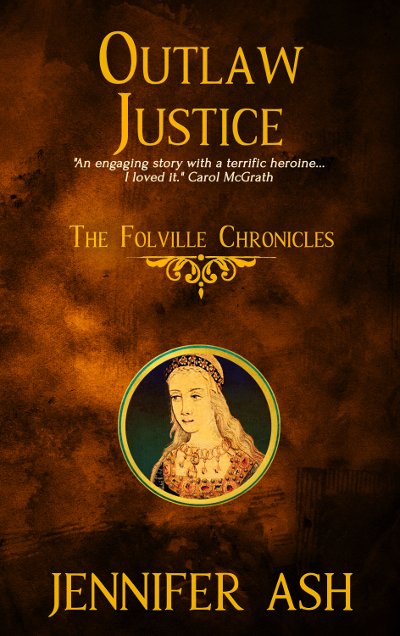
Blurb
England, 1331: Corrupt official, Sir Richard de Willoughby, has been appointed Justice of the Peace, with powers to hunt – and kill – those who oppose him. First on his list? The notorious Coterel brothers and their associates – the Folvilles…
The Folvilles must decide whether to flee into outlawry or take the law into their own hands – but is killing de Willoughby really the answer?
Robert de Folville is keen to dispose of the justice, but Robert’s ingenious wife, Mathilda, has a plan… one that could potentially rid them of Willoughby and yet see them escape the hangman’s noose. But these are tumultuous times and Mathilda must first put herself at great personal risk. Could the tale of a missing noblewoman, overheard by chance, be the key to solving a problem of life or death?
A gripping tale of real-life Robin Hoods, Outlaw Justice is the latest in the critically acclaimed ‘The Folville Chronicles’ series by Jennifer Ash.

Ever since she first came to the attention of the Folville family – as a kidnap victim – Mathilda of Twyford – has been learning that justice for the people of England comes at a high price. The harshest lesson of all, being that, it is often those who purport to uphold the law, that break it the most.
Here’s a tiny taster from Outlaw Justice…
Prologue
30th November 1331
‘Lady Isabel is safe, my Lord?’
‘I’ve seen her escorted to her mother in Lincolnshire by trusted friends. Her ravings these past few months have become intolerable. It’s not good for the children. I increasingly fear for her sanity.’
Keeping his countenance neutral, Bennett removed his master’s cloak. ‘May I be of assistance, my Lord? A drink after your journey perhaps?’
‘You may be of assistance by saying nothing of this to anyone. If King Edward were to hear of my wife’s shameful state, he might deem me unworthy of the office he so recently bestowed upon me.’
Bennett dipped his head respectfully and withdrew into the kitchen. He’d worked for Sir Richard de Willoughby long enough to know when to keep his mouth shut.
Damping down the kitchen fire for the night, absorbed in thought, the steward headed towards Lady Willoughby’s chamber. He’d seen no signs of mental instability. He’d heard no ravings. He had, however, heard a row between her and her husband earlier that day. The one and only time in her whole miserable marriage she’d stood up to her lord.
Pushing his mistress’s door open, Bennett surveyed the scene. Lady Isabel’s travelling cloak hung over the back of a chair by the window. Her hairbrush sat on her side table, and her riding boots waited patiently by the door.
A furrow formed on the steward’s forehead as he closed the chamber door, locking it securely behind him…
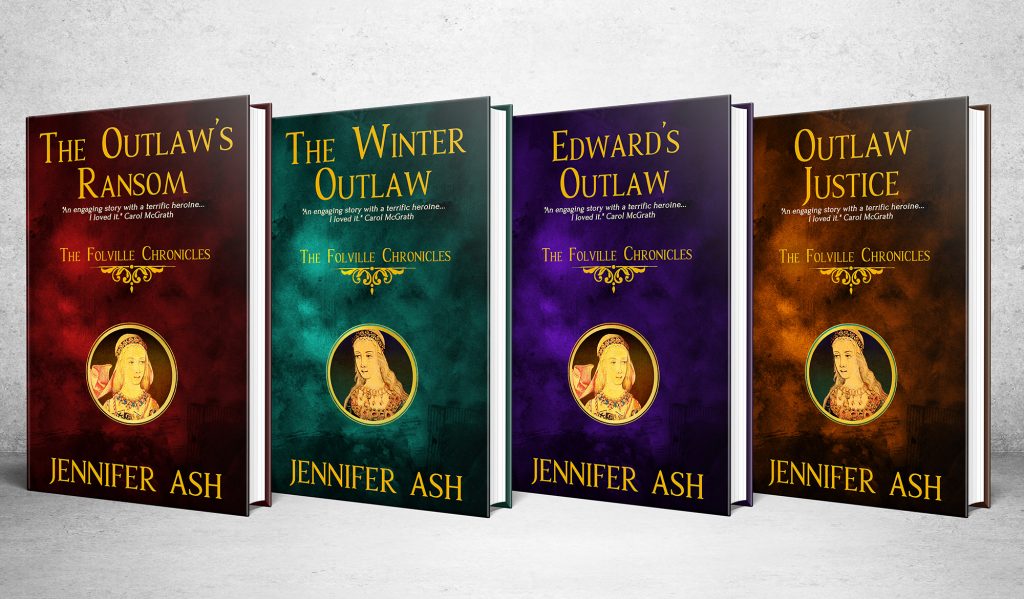
If you’d like to find out what happens next, Outlaw Justice it is available as both an ebook and paperback. It can be read as a standalone novel, or as part of #TheFolvilleChronicles
The Outlaw’s Ransom – mybook.to/theoutlawsransom
The Winter Outlaw- mybook.to/
Edward’s Outlaw – mybook.to/EdwardsOutlaw
Outlaw Justice – mybook.to/OutlawJustice
Happy reading everyone,
Jennifer x

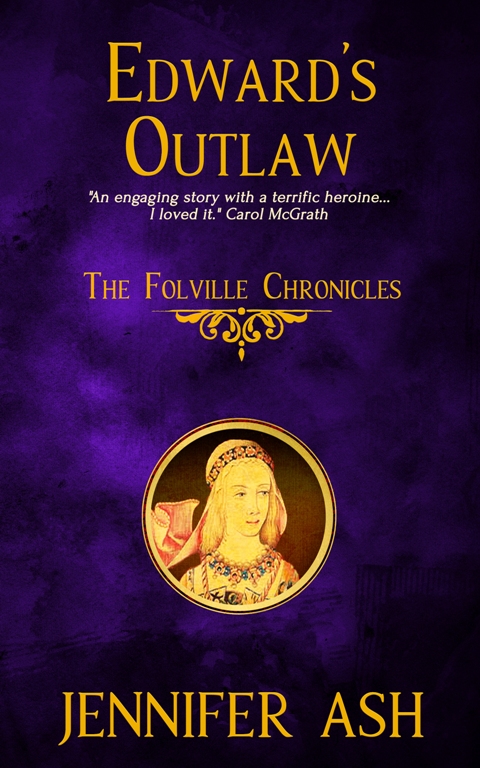

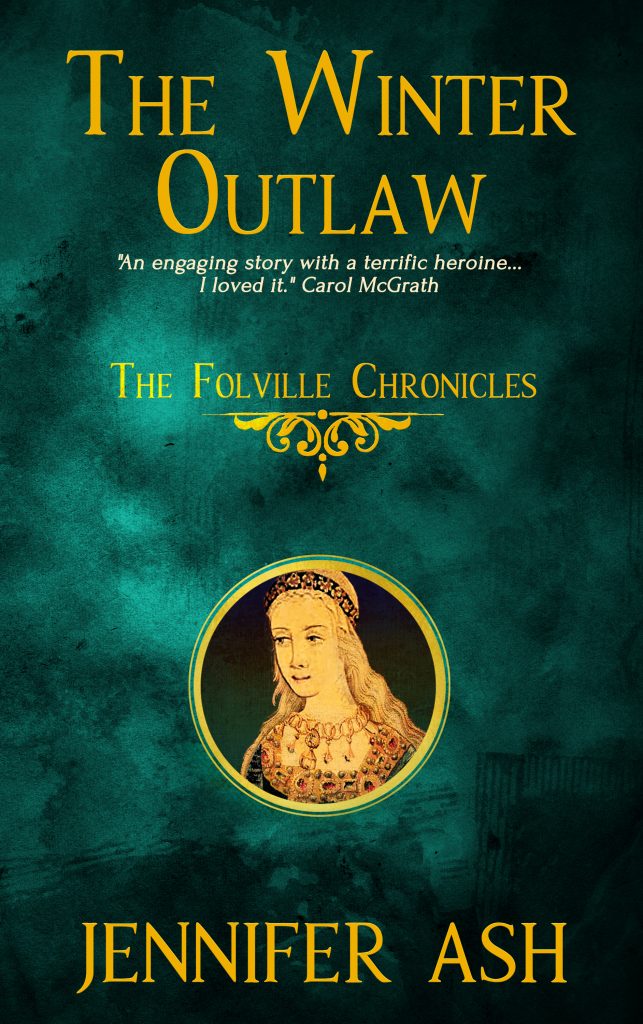
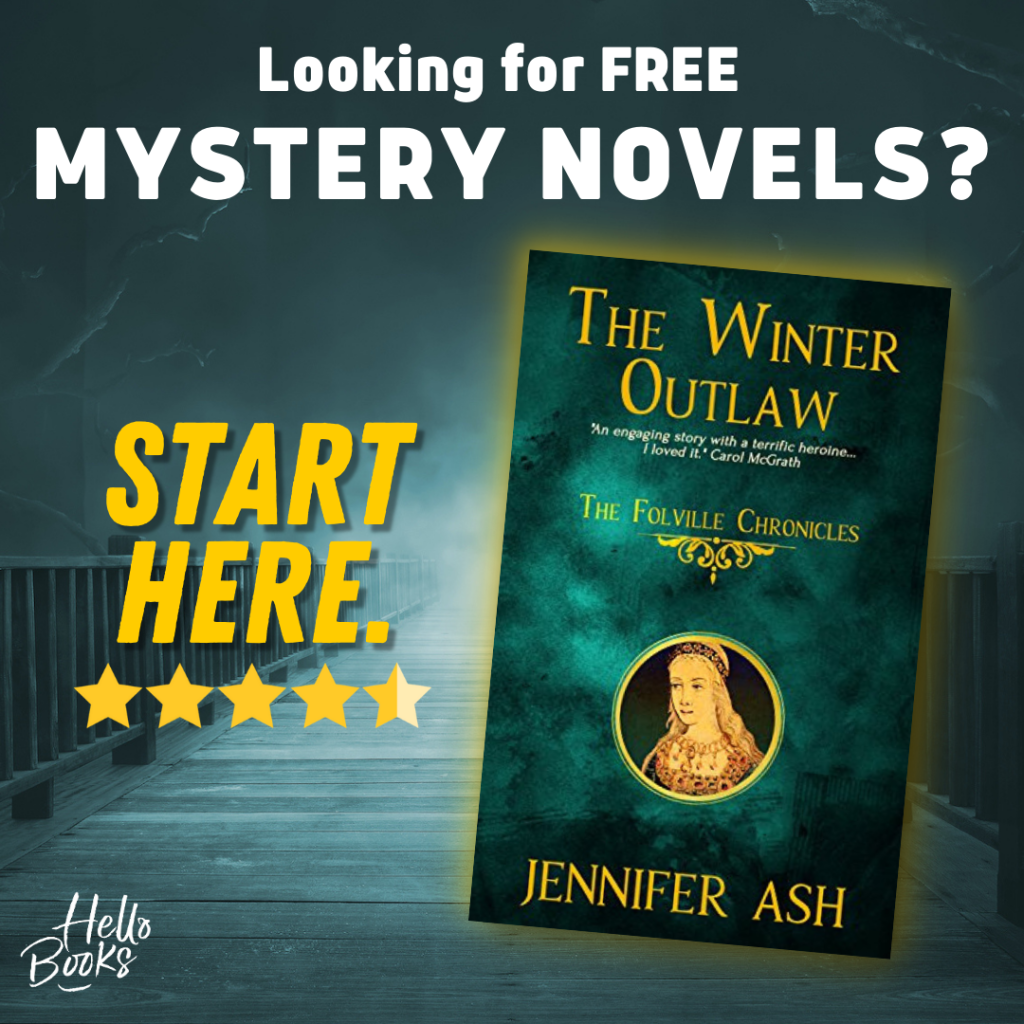
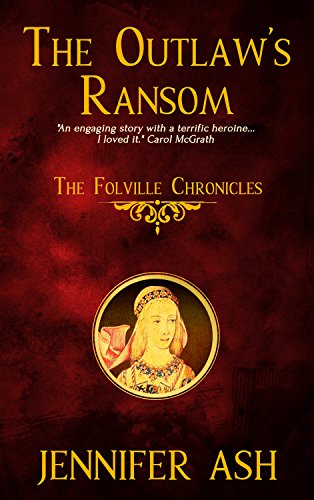
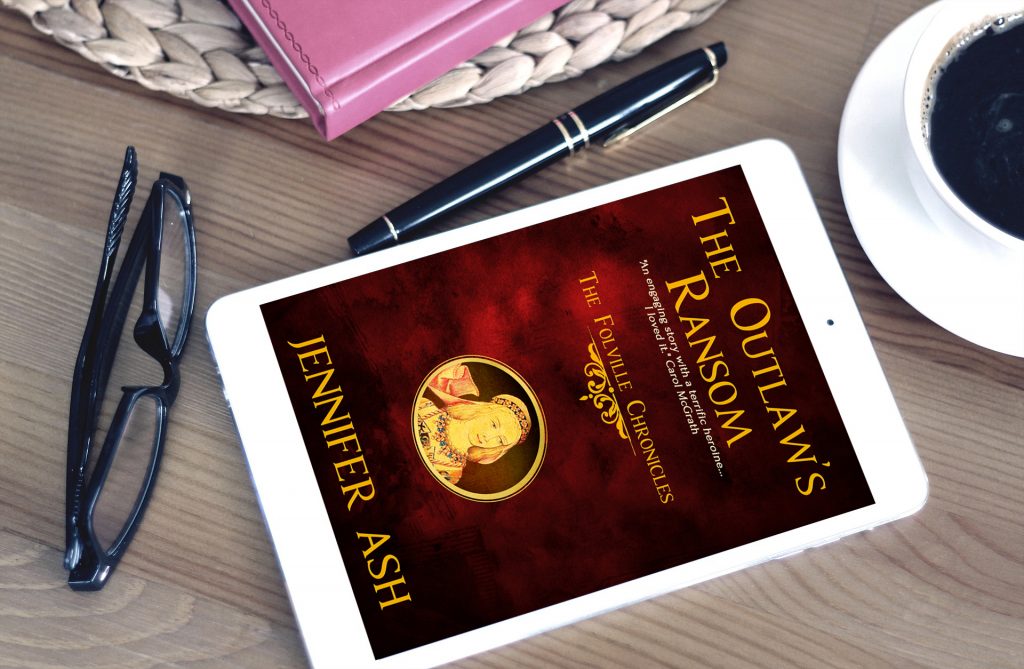



 Bio:
Bio: